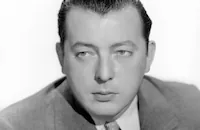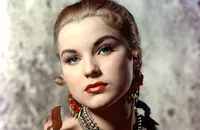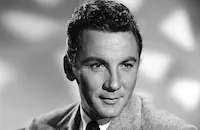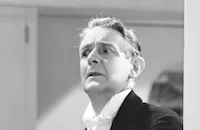Les Miserables

Brief Synopsis
Cast & Crew
Lewis Milestone
Michael Rennie
Debra Paget
Robert Newton
Edmund Gwenn
Sylvia Sidney
Film Details
Technical Specs

Synopsis
Peasant Jean Valjean suffered through decades in French prison for stealing a loaf of bread. Once released, life doesn't become easier. Not only does the community shun him as an ex-convict, but a policeman named Javert refuses to believe he's a good man. Wherever Valjean goes, Javert follows intent on proving Valjean is still a criminal. Yet Valjean is determined to create a new, crime-free life for himself no matter what.

Director

Lewis Milestone
Cast

Michael Rennie

Debra Paget

Robert Newton

Edmund Gwenn

Sylvia Sidney

Cameron Mitchell

Elsa Lanchester

James Robertson Justice

Joseph Wiseman

Rhys Williams

Florence Bates
Guy Miali
Jack Reitzen
James Craven
Herbert Deans
Alfred Linder

Merry Anders
John Rogers
Charles Keane
John Dierkes
John Costello
Norma Varden
William Cottrell

Queenie Leonard
Bobby Hyatt
Sanders Clark
Lewis L. Russell
Sean Mcclory
John O'malley
Leslie Denison
Alex Frazer
June Hillman
Jack Raine
John Sherman
Dayton Lummis
Lester Matthews
Jimmie Moss

Ian Wolfe
Victor Wood
Robert Adler
Olaf Hytton
Stanley Logan
Frank Baker
Michael Granger
Jerry Miley
Jack Baston
Mary Forbes
Jean Vachon
Moyna Macgill
A. Cameron Grant
Tudor Owen

Leonard Carey
William Dalzell
Trevor Ward
Benita Booth
George Cooper
Charlotte Austin
Charles Fitzsimons
Roger Anderson
Victor Rimito
Crew
Serge Bertensson
Father John Devlin
W. G. Eckhardt
Hugh Fowler
Don Greenwood
Morris Harmell
Roger Heman
R. L. Hough
Stanley Hough
Noel Howard
Dorothy Jeakins
Ray Kellogg
Arthur L. Kirbach
Fred Kohlmar
Joseph Lashelle
Charles Lemaire
Thomas Little
Glen Lukens
James Mitchell
Richard Murphy
Alfred Newman
Alex North
Ben Nye
Gerd Oswald
Edward Powell
Stanley Scheuer
Walter M. Scott
J. Russell Spencer
Margaret Warren
Walter Whaley
Lyle Wheeler

Film Details
Technical Specs

Articles
Sean McClory (1924-2003)
Born on March 8, 1924 in Dublin, Ireland, he became a leading man at the famous Abbey Theatre in the early '40s and relocated to the United States shortly after World War II. His first roles were small bits as a police officer in two RKO quickies: Dick Tracy's Dilemma and Dick Tracy Meets Gruesome (both 1947). He eventually graduated to more prestigious pictures like The Glass Menagerie (1950), Les Miserables (1952) and John Ford's The Quiet Man (1952).
After a few more supporting roles in quality pictures: Niagara (1953); the sci-fi chiller Them! (1954); and for John Ford again in The Long Gay Line (1955), McClory turned to television. He kept busy for several years with guest roles in a variety of popular shows: Bonanza, Wagon Train, Rawhide, Gunsmoke, The Outer Limits (1964) and countless others. By the mid-'60s, McClory became slightly more heavy-set, and began tossing off variations of jovial, "oirish" blarney for, yet again John Ford in Cheyenne Autumn (1964); and in a string of Disney pictures: Follow Me, Boys! (1966, his best role, a moving performance as the alcoholic father whose behavior alienates his son, played by a 15-year old Kurt Russell); The Happiest Millionaire (1967), and The Gnome-Mobile (1967), before he returned to television. His final role was in John Huston's acclaimed Irish opus The Dead (1987). He is survived by his wife, Peggy Webber McClory.
by Michael T. Toole

Sean McClory (1924-2003)
Quotes
Trivia
Notes
The title card of this film reads: "Twentieth Century-Fox presents Victor Hugo's Les Miserables." The working title of the film was Jean Valjean. On July 20, 1951, Los Angeles Examiner reported that Jeff Chandler would be starring as "Jean Valjean" and James Mason would play "Javert." According to August 1951 conference notes contained in the Twentieth Century-Fox Produced Scripts Collection, located at the UCLA Arts-Special Collections Library, Mason refused the role, and producer Darryl F. Zanuck suggested Orson Welles for Javert. Zanuck also suggested that along with Lewis Milestone, Henry King and Roy Baker be considered to direct the picture.
Although contemporary reviews include Patsy Weil as "Cosette at age seven" in the cast, her part was cut from the finished film. Hollywood Reporter news items include the following actors in the cast, although their appearance in the completed picture has not been confirmed: Max Wagner, John Raven, Howard Davis, Emmett "Kid" Wagner, Michael Tellegen, Harry Mayo, Kit Carson and Nick Thompson.
On December 22, 1952, Robert Newton and Debra Paget reprised their roles for a Lux Radio Theatre broadcast of the story, which starred Ronald Colman as Valjean. There have been many film versions of Victor Hugo's Les Miserables, including a four-part series produced by Vitagraph in 1909; a 1917 Fox Film Corp. production directed by Frank Lloyd and starring William Farnum (see AFI Catalog of Feature Films, 1911-20); a 1934 French production starring Harry Baur and Charles Vanel and directed by Raymond Bernard; a 1935 20th Century Pictures production directed by Richard Boleslawski and starring Fredric March and Charles Laughton (see AFI Catalog of Feature Films, 1931-40); a 1944 Mexican production directed by Fernando Rivero and starring Dominugo Soler and Antonio Bravo; a 1978 television film starring Richard Jordan and Anthony Perkins; a 1995 French production directed by Claude Lelouch and starring Jean-Paul Belmondo and Philippe Khorsand; and a 1998 TriStar production starring Liam Neeson and Geoffrey Rush and directed by Bille August.
In 1941, Twentieth Century-Fox announced that it would produce a version of the story starring Laird Cregar and Linda Darnell and directed by John Brahm, but that production was never completed. A musical based on the novel, with French text by Alain Boubil and Jean-Marc Natel, additional material by James Fenton and music by Claude-Michel Schönberg, opened in Paris in 1980. The popular English-language version of the musical, with lyrics by Boubil, Natel, Herbert Kretzmer, Trevor Nunn and John Caird, had its U.S. premiere in Washington, D.C. on December 20, 1986.















